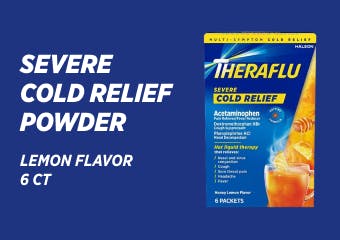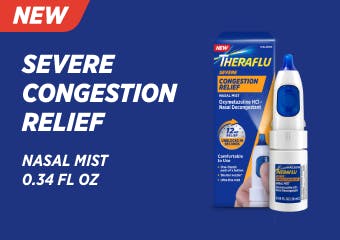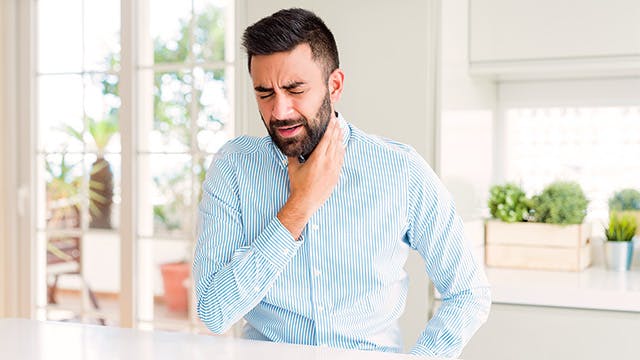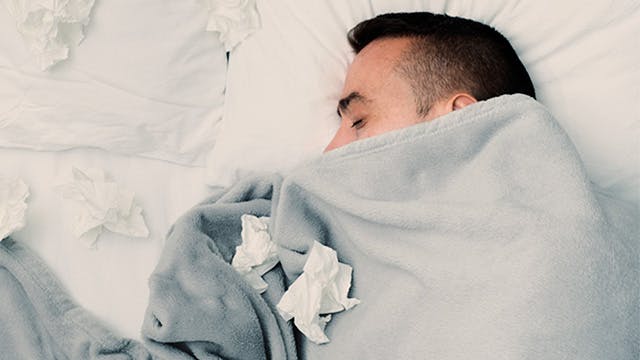Why do we sneeze?
Sneezing is a protective reflex. In order to stop an irritant from going from your nose into your sinuses or lungs, you sneeze to push it out. It’s the body’s way of tossing out an intruder.2 Sneezing is not normally the result of a serious health problem and is part of your body’s natural defense system.1
How to prevent sneezing at home3:
Sneezing can be annoying, and it can spread cold and flu germs. There are a few ways to reduce sneezing that range from home remedies and simple tips to over-the-counter medications that include:
- Antihistamines
- Nasal sprays
- Anti-viral medication (when sneezing is caused by a cold or flu)
You can also avoid the triggers that cause you to sneeze in your home by making some simple adjustments1:
- Make sure your bedding is always clean
- Vacuum pet hair and keep your pets groomed and clean
- Buy an air filtration machine to help clean the air in your home before you breathe it in
- Get your house checked for mold, which can lead to excessive sneezing and other, more serious health problems
Should you ever hold in a sneeze?
It may feel like second nature to hold in a sneeze, especially if you’re trying to suppress the spread of germs or avoid disrupting those around you. But holding in your sneeze may actually do more harm than good. By not sneezing, you actually keep irritating substances in your body, where they can enter the sinuses and lungs.2
A sneeze may leave the body at 70 miles per hour, holding it in may actually cause damage to your ears and throat.2 Mucus may accumulate and be forced into your ears’ Eustachian tubes. These tubes are small passages that connect your ears to your throat and help to drain fluids and alleviate pressure. If the built-up mucus is due to a virus or bacterial infection and is pushed into these tubes, the result may be a middle ear infection or holes in the eardrum.2 The simple way to avoid these complications is to let out your sneezes and allow your body to rid itself of irritants. Make sure to thoroughly wash your hands and clean any nearby surfaces afterwards.
When should you see a doctor about sneezing?
Most sneezing is rarely indicative of a serious problem but there may be a few instances where you should seek medical attention for yourself or a member of your family2,3:
- If symptoms last for more than 10 days
- If symptoms are severe or unusual
- If a child is younger than three months of age and is lethargic or has a fever
You should also contact your doctor if you are at high risk for serious flu complications. People who are considered high risk for these kinds of complications are young children under the age of 5, adults 65 and older, pregnant women, and people with medical conditions like asthma, diabetes, and heart disease.3
A medical professional will perform a physical exam and look at your nose and throat.1 You may have to answer questions about your symptoms and medical history. In some cases, allergy testing may be recommended to determine the cause of the sneezing if other illnesses are ruled out.1
How to treat sneezing
If your sneezing is caused by a cold or flu, it may be best to try an over-the-counter medication that contains an antihistamine such as diphenhydramine HCI, which can ease your sneezing as you get over the bug. Theraflu Nighttime Severe Cold Relief Hot Liquid Powder contains ingredients that relieve nasal congestion, cough, body aches, sore throat, fever, headache, and runny nose.




